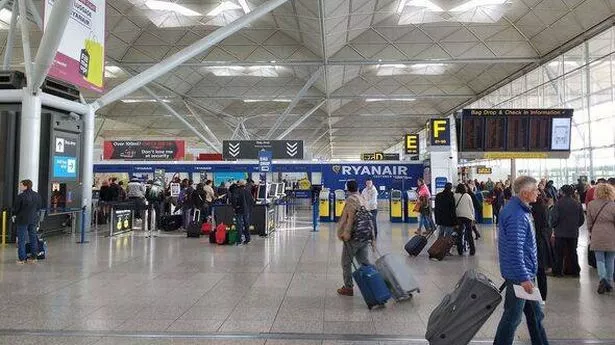The UK airports with the least flight cancellations have been unveiled.
Only one of London's six major airports made the list. London Stansted ranked third overall, with a mere 0.65% of flights being cancelled, according to Civil Aviation Authority data. Serving an impressive 30 million passengers annually, Stansted, considered London's third airport, offers a variety of budget-friendly flights at a more reliable rate than popular airports like Heathrow and Gatwick - neither of which made the top 10.
In fact, Heathrow has a disappointing 2% of flights cancelled, with Gatwick slightly lower at 1.88%. London City was the worst airport in England's capital for cancellations, with a surprising 4.21%. Overall, Bournemouth Airport had the fewest cancellations in the UK at just 0.22%. Bournemouth Airport is significantly smaller than the London ones, serving just under 1 million passengers between March 2023 and 2024.
In 2023, there were only 14 scheduled services to 35 destinations, but this small number means cancellations are less likely, potentially offering a smoother travel experience. East Midlands Airport took second place, still relatively small compared to the major London airports, but notably larger than Bournemouth.
The airport serves over 4.2 million passengers, connecting them to more than 90 destinations, with a minuscule cancellation rate of just 0.44%. Take a look at the full rundown of the top 10 UK airports with the least cancellations below, reports the Express.
Top 10 UK airports with the fewest cancellations.
- Bournemouth - 0.22%
- East Midlands - 0.44%
- Stansted - 0.65%
- Luton - 1.06%
- Belfast International - 1.07%
- Birmingham - 1.2%
- Liverpool - 1.21%
- Manchester - 1.27%
- Newcastle - 1.27%
- Bristol - 1.29%
Even though we’ve left the European Union, we have still retained may laws that give us rights that have now been incorporated in to UK law. The law governing compensation for delayed and cancelled flights is The Air Passenger Rights and Air Travel Organisers’ Licensing (Amendment) (EU Exit) Regulations 2019.
At heart, the law requires airlines to pay out compensation if the delay or cancellation is as a result of something that they could have foreseen or could have anticipated. So a delay arising from a technical problem with the aeroplane would result in compensation if it lasted longer than three hours. The same goes for strike action by pilots or cabin crew.
However, other things that could have an impact on your flight fall outside of the airline’s powers. For example, strike action by air traffic controllers or airport staff isn’t the fault of the airline. The same goes for weather related delays, or unexpected events like an Icelandic volcano eruption grounding flights. That’s where your travel insurance should kick in instead.
Of course, some things are subjective. An airline might cancel flights in advance citing an upcoming air traffic controller strike in France, even though the actual flights are more or less still going ahead over different airspace. You could complain about this, though you’d need to do your research to be successful.
